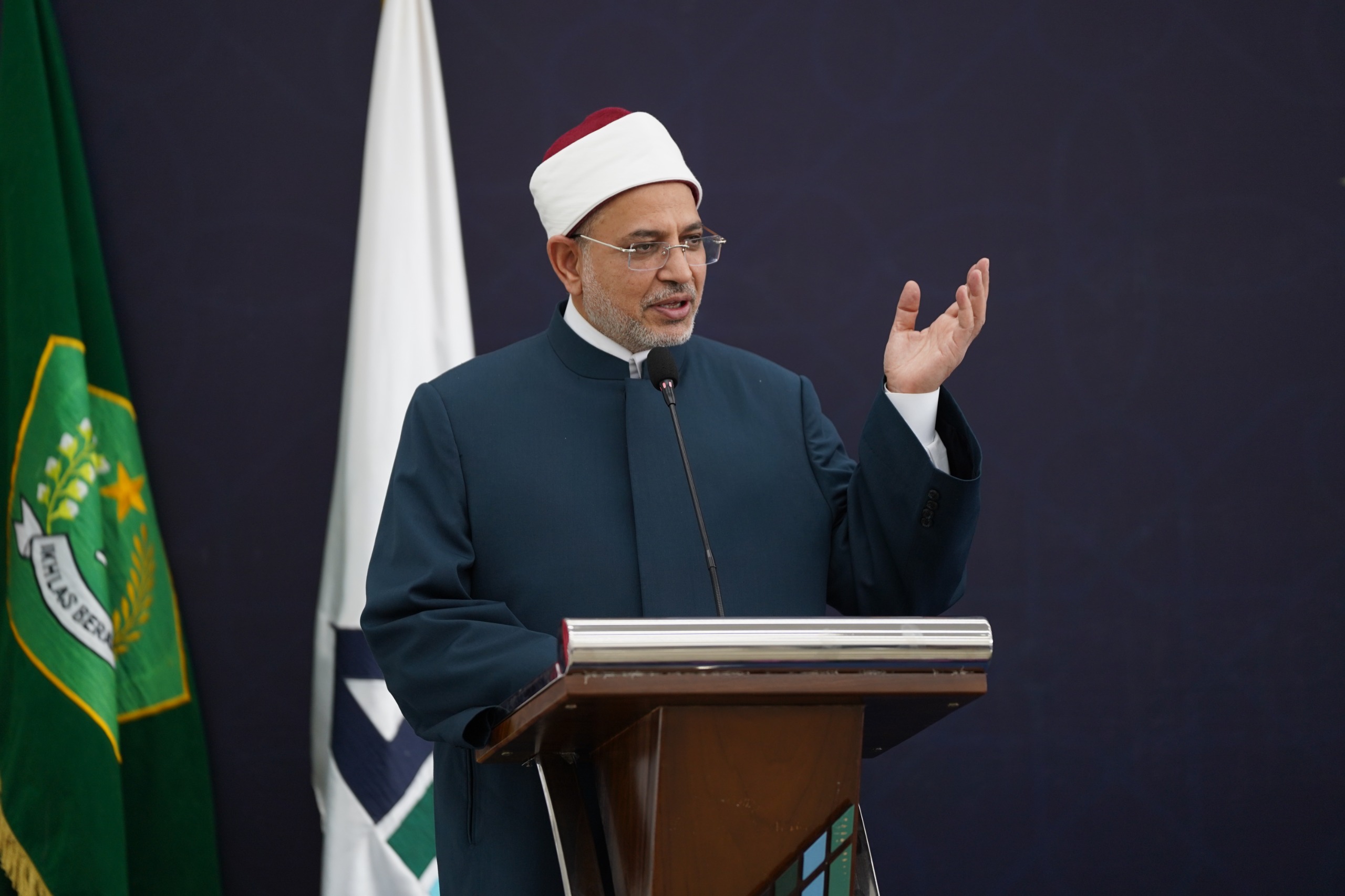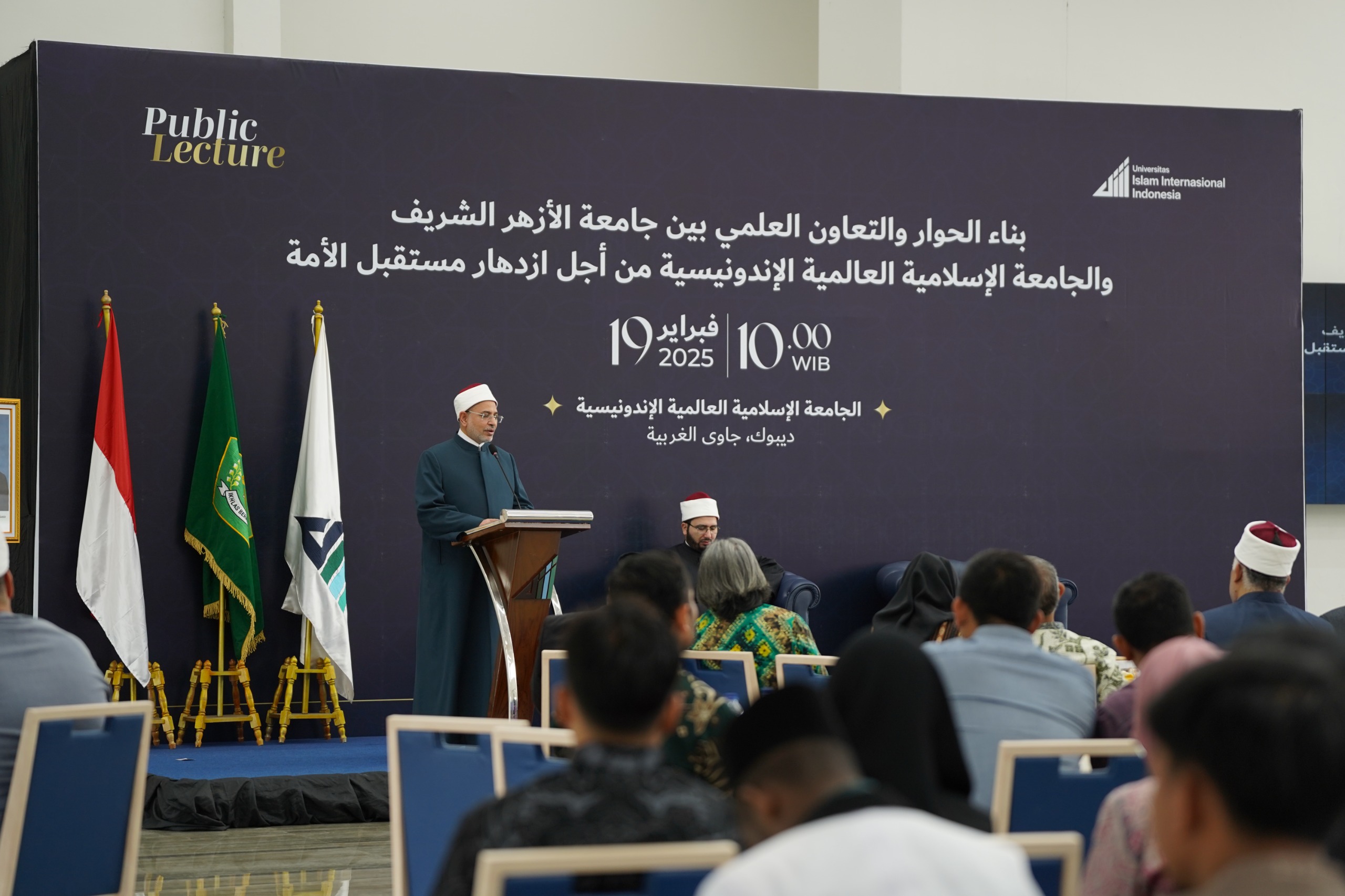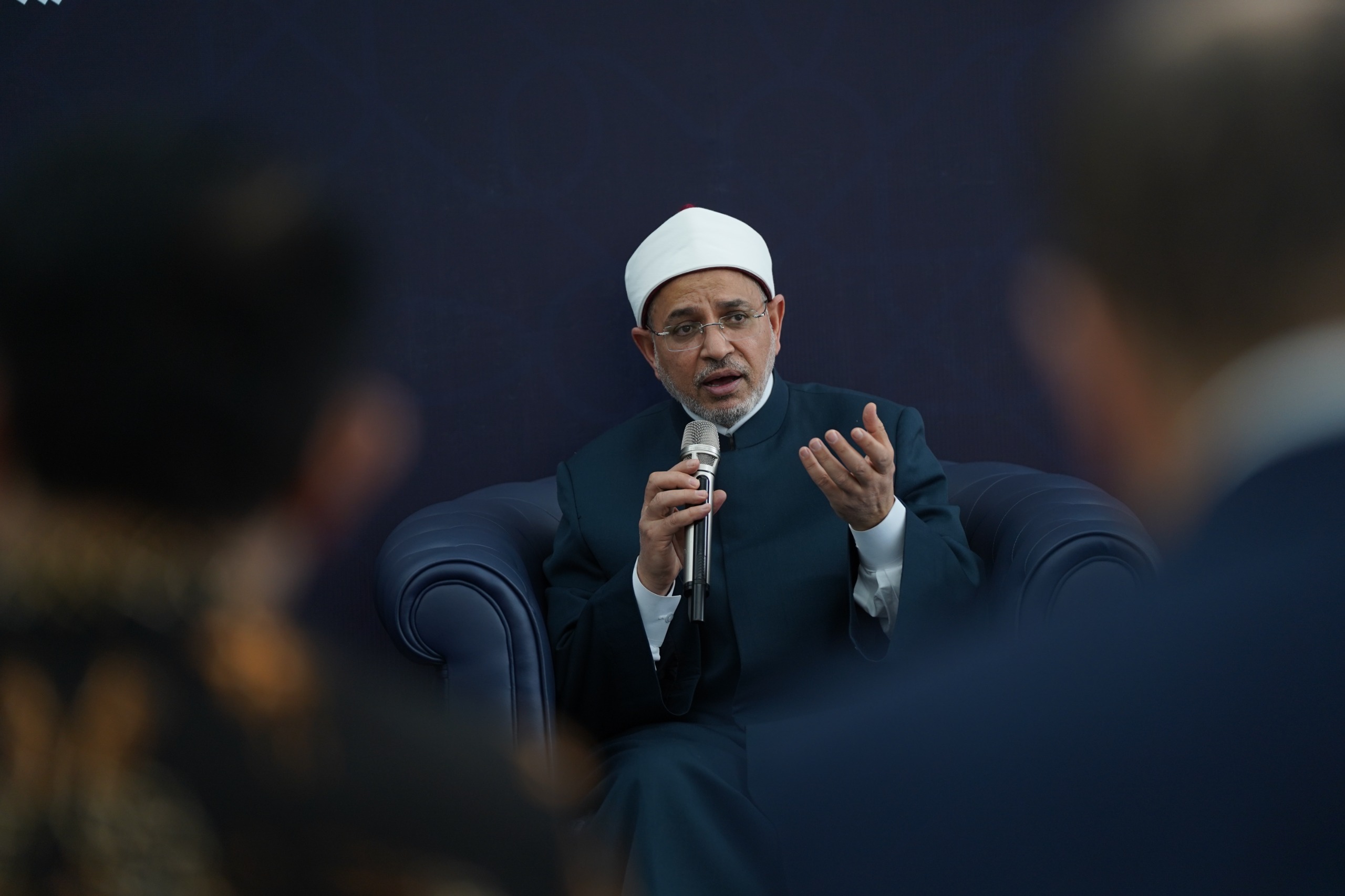'Indonesia Has Strong Commitment to Islamic Knowledge': Al-Azhar Rector at UIII

Depok, Indonesia – As part of his visit to Universitas Islam Internasional Indonesia (UIII) on February 19, 2025, Prof. Dr. Salamah Dawud, Rector of Al-Azhar University, delivered a public lecture titled “Fostering Academic Dialogue and Collaboration: The Synergy Between Al-Azhar and UIII for the Future of Islamic Civilization.”
A renowned expert in rhetoric (balaghah) and literary criticism (naqd), Prof. Dawud provided in-depth insights into how Islamic traditions can address the challenges of modern times. The lecture drew an audience of UIII faculty, students, and scholars, all keen to explore new directions in Islamic studies.
Prof. Dawud highlighted the historical and educational ties between Indonesia and Al-Azhar, noting that over 15,000 Indonesian students are currently studying at Al-Azhar University. “The Grand Sheikh of Al-Azhar, Sheikh Ahmad Tayyeb, has a special regard for Indonesian students, recognizing their strong commitment to Islamic knowledge and their alignment with Al-Azhar’s values of Islamic moderation,” he stated.

During the lecture, he discussed Al-Azhar’s role in spreading moderate Islamic education through its network of over 12,000 institutions in Egypt, including numerous kuttabs that nurture Qur’anic memorization from an early age. He also announced Al-Azhar’s plans to establish four new faculties in Artificial Intelligence (AI), Islamic Heritage and Manuscripts, Science and Technology, and Medicine.
Addressing the newly signed Memorandum of Understanding (MoU) between UIII and Al-Azhar, Prof. Dawud expressed Al-Azhar’s commitment to supporting UIII beyond Islamic studies, including fields like science, technology, architecture, and medicine. He also pledged Al-Azhar’s assistance in establishing an Arabic Language Center at UIII and sending qualified faculty members to enhance the university’s academic programs.
The lecture underscored UIII’s mission to be a global hub for Islamic scholarship, reaffirming its dedication to strategic partnerships with world-class institutions like Al-Azhar. This collaboration is expected to broaden academic horizons and contribute to the intellectual and cultural development of the Muslim world.
